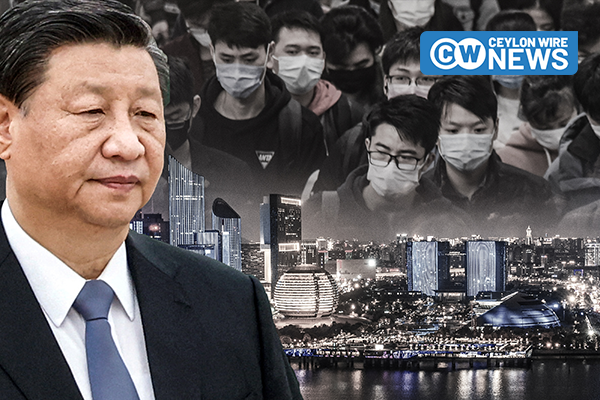The slowing economy, growing deflationary pressure, and high unemployment in China have resulted in declining salaries and wages and overdue payments in the country. The salary cuts have affected civil servants, doctors, teachers, and even armed forces personnel. The struggle to earn the required amount for livelihood has caused frustration among Chinese people.
Beijing resident Kang Deqiang has been forced to work as a manager in a local college dormitory and also moonlight at a coffee shop in the evening after he lost his job as a marketing executive. He said his current earnings are just 20 percent of what he used to get earlier. “There isn’t anybody who doesn’t like a high-paying job. But the economy is going downhill. I have to settle for the next best thing,” he said.
Around one-third of Chinese officer workers have reported a reduction in their salaries, according to a survey carried out by Chinese recruitment platform Zhaopin. Average salaries in cities shrank by 1.3 percent in the fourth quarter of 2023 year-on-year, which is the lowest since 2016. The fall is 2.7 percent in Beijing and 4.5 percent in Guangzhou. The hiring salaries in Shanghai and Beijing showed a decline of 9 percent and 6 percent in late 2023.
There has been a gradual decrease in the wage growth in China, which reduced to just 3.7 percent in 2022 from the double-digit growth a few years ago. With wage growth turning negative in 2023, China’s National Bureau of Statistics may not publish the latest figures as it did when the unemployment rate soared in mid-2023. The biggest blow, however, was received by the finance sector as banks slashed salaries by 15-40 percent to comply with President Xi Jinping’s “common prosperity” campaign.
The Xi Jinping government is trying hard to suppress the news of salary cuts. However, the affected workers are speaking openly. “In Jiangxi, they’ve had notice of 30 percent reductions in salary,” said a private company worked named Liu. Chinese people are expressing their anger on social media platforms over layoffs and stagnant or falling wages.
Besides pay cuts, delayed or overdue wages have led to anger among Chinese workers. A political commentator named Ji Feng said “A lot of local government officials, police officers, teachers and doctors are owed wages right now. It goes without saying that the economy is shrinking – the decline continues,” he said. Even mid-career professionals are being replaced by freshers so that employers can pay lower wages. “Those who have been laid off have had their life plans thrown into turmoil,” said Shanghai-based game developer Ding.
China has been witnessing labour protests due to poor economic conditions and wage-related disputes. “My biggest wish in our industry is not to be afraid of hardship and sweat, and I just hope that I can get the salary I deserve,” said Zhang Chao, a worker from Zhejiang province.China reported 1,700 labour strikes in 2023, which was double that in 2022, as per the Hong Kong-based non-profit China Bulletin.
The pay cuts are not going to yield good results for Chinese economy, warn experts. “Unless we see a steady growth in disposable income, I don’t think consumption’s going to improve in China anytime soon,” said Alicia Garcia Herrero, chief Asia Pacific economist at Natixis. “Everybody thinks Chinese consumers are not consuming because they feel there’s too much uncertainty, they don’t feel like it.
A China-based economist held budgetary problems being faced by the local government responsible for the pay cuts. “To ease unemployment the government has to hire people, but they’re with limited budget now, so it’s a must to reduce wages,” he said. China seeks to restore economic growth by stimulating consumption. However, pay cuts have made it difficult. “On the one hand, authorities encourage households to increase consumption, but on the other hand they call for pay cuts and limits,” said Eson, who is business head at a Shanghai-based bank.
The decision to cut wages amid falling prices can lead the Chinese economy to fall into a debt-deflation spiral. Geopolitical risk analyst Neil Thompson said the unrest due to wage cuts can increase amid a negative growth outlook. “Diminishing returns will also increase pressure for an overhaul in the country’s economic model and better social protections for workers,” he said.









